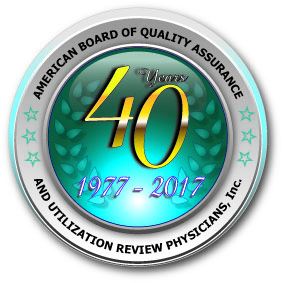CHCQM Diplomate Achievement Award Submissions with Honorable Mention
In celebration of our 40th year, ABQAURP introduced the CHCQM Diplomate Achievement Award. The CHCQM Achievement Award will be presented to recognize the Diplomate that embodies the values of the medical profession through leadership, service, excellence, and integrity; demonstrating their commitment to improving the quality of health care.
To read about the Award Winner: Click
HERE.
A sincere "Thank You" to all of our ABQAURP Diplomates that submitted outstanding initiatives leading to sustainable change in patient safety outcomes, provider and/or patient engagement, and overall quality improvements. Below is a summary of their submissions:
 Jason L. Adler MD, MBA, CHCQM, FAAP, FCCP, CPE
Jason L. Adler MD, MBA, CHCQM, FAAP, FCCP, CPE
Health Care Transitions Company – Hollywood, FL
Dr. Adler founded the Health Care Transitions Company, which provides transitional care and ongoing outpatient management to children with chronic medical complexity. The program is unique because an intensive care physician-directed team of two individuals provides transitions of care and outpatient complex chronic care. In doing so, we provide continuity and fill a void in services for these children, especially during vulnerable periods of care transition. It is not a goal of our program to replace subspecialists or primary physicians. To the contrary, many of our children have improved subspecialist access and care due to our involvement and identification of special care needs.
The children that we follow are historically high utilizers of inpatient services. One of our goals is to try to impact inappropriate use of inpatient services, but also to ensure timely and appropriate inpatient care when indicated. Through early detection, we strive to prevent catastrophic consequences. These patients have a detailed care plan reviewed with them on their initial office visit and ongoing education and support is provided. We have 24-hour on-call availability. For children referred to us via hospital referral, we attempt to meet and orient the parents prior to discharge, review their hospital-based care, review their recommended follow up care plan, and attempt to establish a treatment relationship. This is done so that we can assist in the care transition process. Parents/caregivers utilize this service frequently after acute hospitalization because we know their children well and are able to proactively deal with multi-organ system and durable medical equipment issues in the past had required ED visits. Parents have expressed a high degree of satisfaction with our services.
Health Care Transitions Corporation employs strategies and tools to achieve value-based care of medically complex and fragile children (and rarely young adults) using an intensive care physician led model of care. Empiric data to date supports successes achieved through this model of care. We are working to have robust data, but have limited to no support at this point for quality and outcomes research. We are in the process of potentially merging with the children’s hospital where we practice and hope to expand the scope of our services with the addition of more clinic times, providers, increasing use of telehealth, greater integration of our EHR, and expanded research.

 AJ Beisler, MD, MBA, FACS, CHCQM
Joan King, DO, MHA, CHCQM
Permedion, an HMS Company - Westerville, OH
AJ Beisler, MD, MBA, FACS, CHCQM
Joan King, DO, MHA, CHCQM
Permedion, an HMS Company - Westerville, OH
Permedion provides independent utilization and external medical review for the Ohio Department of Medicaid (ODM). ODM aggressively seeks to reform and modernize the Medicaid Program and provide quality care with positive outcomes. In an effort to further their ability, Permedion (led by Diplomate team Dr. AJ Beisler and Dr. Joan King) has been instrumental with two projects investigating the quality of care of Ohio Medicaid recipients, identifying possible weaknesses, and making recommendations to improve patient safety and clinical outcomes.
The first project was the Pre-Mortality Quality of Care Initiative (PMQCI). The purpose of the PMQCI was threefold: estimate the proportion of potentially preventable deaths, estimate the rate of process failures and identify characteristics for recipients who expired in the hospital or within 30 days of a hospital encounter.
This in-depth investigation revealed the majority of preventable deaths had evidence of failure to recognize clinical changes/or failure to communicate, issues at a transition of care, a lack of interval care from the time of discharge to the readmission in which recipients expired, and the under-utilization of DNR/Comfort Care status. Through this study, several areas of increased risk were identified and recommendations made to improve the quality of care. A further recommendation on a population health approach with data analytics to gain further insight into populations identified in this study to be at risk was also made.
The second project was to conduct Focused Reviews to closely investigate questionable occurrences to recipients and provide valuable feedback to mitigate the likelihood of reoccurrence. Several critical points in the process of care provision identified the greatest likelihood of error introduction. Identifying these areas has led to opportunities for improvement to ensure safe and effective care delivery.
Projects such as the PMQCI and Focused Reviews have been able to identify issues in failure of communication, transition of care and a lack of coordination of care. From this information, process change will continue to occur to provide sustainable improved quality of care and patient safety.
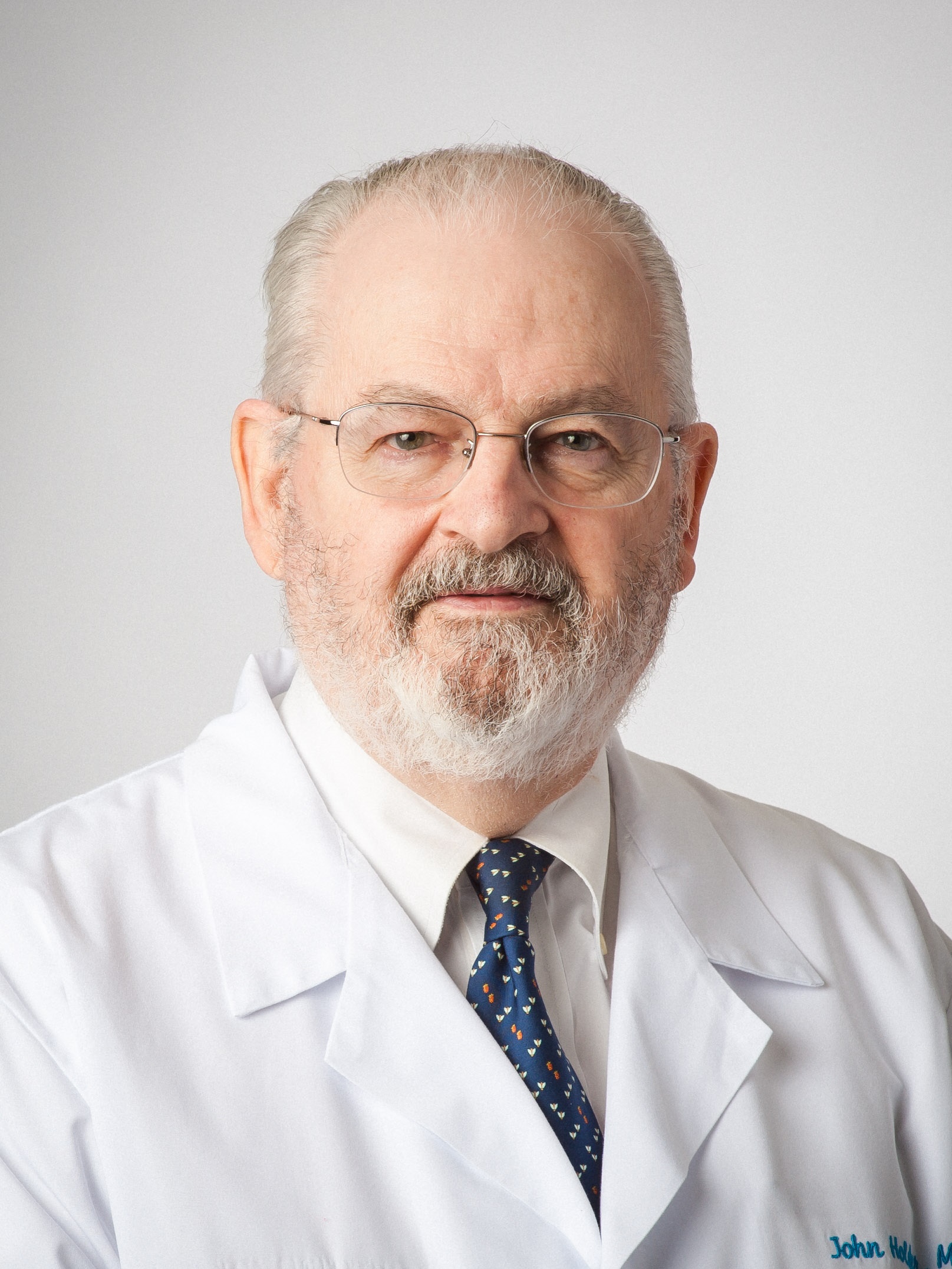 John T. Holder, MD, FACC, CHCQM
John T. Holder, MD, FACC, CHCQM
Overlake Hospital Medical Center - Bellevue, WA
with Mr. Constantin Mihai
MioCardio v1.0 is a Clinical Decision Support System (CDSS) that automates multiple Computer Interpretable Guidelines' (GLs) and organizes them into automated checklists for error prevention, reduction of both under and over utilization, and improving safety and quality and improving value by both increasing quality and reducing costs. Designed by Dr. Holder and Mr. Constantin Mihai, a software development specialist, goals are achieved by improved communication in multiple languages and across multiple devices. It is a functional standalone product prepared to interact with the EHR (electronic health record) and is intended as a personal assistant tool for Professionals/Clinicians and Individuals/Patients to evaluate protocols and perioperative programs while translating human readable medical guidelines into computer interpretable standards.
MioCardio helps both professional and individuals to evaluate medical conditions in accordance with the Guidelines published by the American College of Cardiology (ACC). In three simple steps, one can configure and trigger the evaluation of multiple ACC guidelines and review the recommendations provided by the ACC: select the guidelines to evaluate, input patient-specific information, and review recommendations.
The cloud-based technology opens the possibility of integrating MioCardio recommendations with 3rd party Health Information Systems (HIS) allowing granularity of monitoring and visibility of what is used and when. Increasing the level of granularity at which the GLs evaluation will happen drives cost reduction for adopters and a wider application of the technology. This clears the path for more innovative ways of using GLs evaluation such as comparing to historical patient data to support treatment and clinical decisions as well as other population health measures.
MioCardio substantially improves Quality (by automating, organizing, simplifying, and translating guidelines interactively); Safety (meeting Appropriate Use Criteria and creating safety by following evidence based guidelines and preventing over- and under-utilization); and Value (reducing costs, improving efficiency, and reducing errors).
 Patricia C. Hunt, DO, MHA, CHCQM
Patricia C. Hunt, DO, MHA, CHCQM
Universal American, Health Services Division - White Plains, NY
with Dr. Talya Schwartz
While serving as Senior Director of Today's Options Medicare Advantage Plans at Universal American (in 2013), Dr. Hunt launched the Intensive Care Management Program (ICM).
Patients were classified for level of risk and appropriate attention via use of proprietary software known as “the percolator”, designed by Dr. Talya Schwartz. The ICM began with the systematic assessment of initial information and input from community and hospitalist physicians. This would focus resources on those cases that would benefit most from intervention. The ICM team would then facilitate needed communication and (protected) data sharing leading to improve quality and timeliness of care as well as decreased readmissions and cost reductions far in excess of any extra expense of the ICM program.
The ICMs effectively addressed chronic diseases in the outpatient setting through frequent in person “touch” visits and “virtual” telephonic visits. These visits provided a variety of specialty services including nursing, social work, pharmacy, and psychology, while being cognizant of safety issues in the living environment, which were barriers to care. Dr. Hunt worked to bridge the technical results with clinical insight. Unmet needs, which were barriers to health, were recognized and addressed.
Results revealed program success in cost reduction, utilization management, patient safety, and quality initiatives that resulted in significantly improved Five-Star Quality Ratings from CMS. It also produced outstanding pharmacy savings and utilization reductions while concurrently expanding appropriate member benefits by looking at prescriber trends and population needs. We improved patient satisfaction and helped fill a cluster of senior care needs. We learned that many ‘compliance’ issues translated into safety barriers to care.
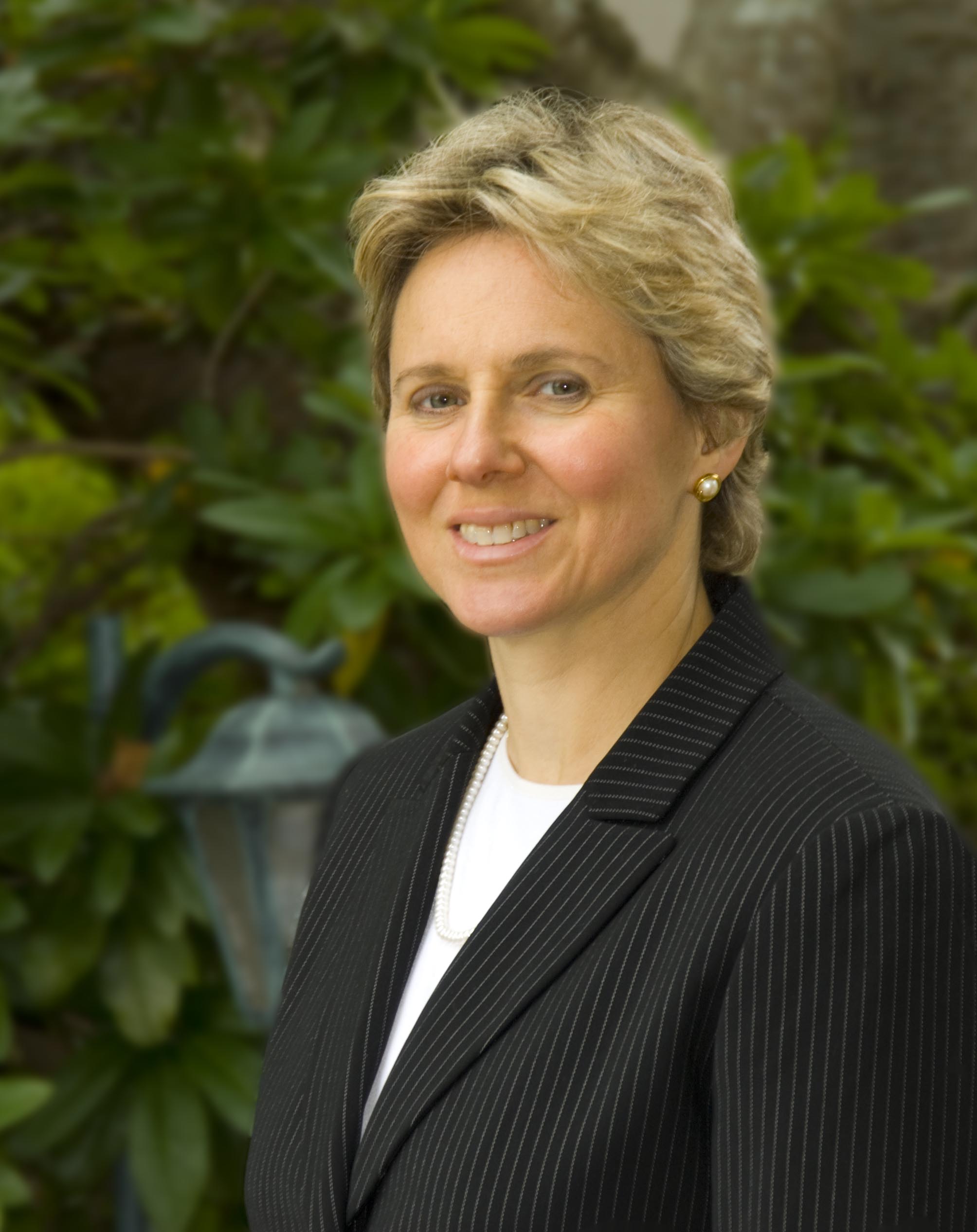 Carolyn Langer, MD, JD, MPH, CHCQM
Carolyn Langer, MD, JD, MPH, CHCQM
MassHealth - Quincy, MA
As Chief Medical Officer of MassHealth (the Massachusetts Medicaid Program), Dr. Carolyn Langer has been at the helm of the clinical team advancing the Massachusetts accountable care organization (ACO) initiative. Compared to the general population, the MassHealth membership has a higher prevalence of behavioral health conditions, substance use disorders, physical and intellectual disabilities, and dependency on long term services and supports (LTSS). In her role as the clinical lead and co-chair of the ACO Quality Measurement Workgroup between the summer of 2015 and the fall of 2016, Dr. Langer led colleagues and stakeholders through a thoughtful and deliberate process to develop a set of measures by which to assess quality, access, and value associated with care delivered by the MassHealth ACOs.
Specifically, Dr. Langer led fourteen meetings of a multi-stakeholder workgroup with representation from a variety of providers, payers, state agencies, professional and trade associations, advocates, consumers, academics, and others who brought the perspective of the many vulnerable populations that MassHealth serves. In addition, she and colleagues met with individual experts or groups focused on specific areas, such as pediatrics, behavioral health, and LTSS. Although such a significant public stakeholder engagement process required considerable time, effort, and collaboration, what others perceived as a barrier, Dr. Langer saw as an opportunity. She harnessed that opportunity to not only lay the groundwork for one of the most impressive and leading-edge quality measurement slates for ACOs, but to also build a deep sense of trust and engagement between the Medicaid program and its multiple and diverse stakeholders.
Through her commitment to a transparent and responsive process, Dr. Langer paved the way for a quality measurement program designed to both reflect well-validated, evidence-based measures and, equally important, to assess those outcomes of most concern to these underserved populations.
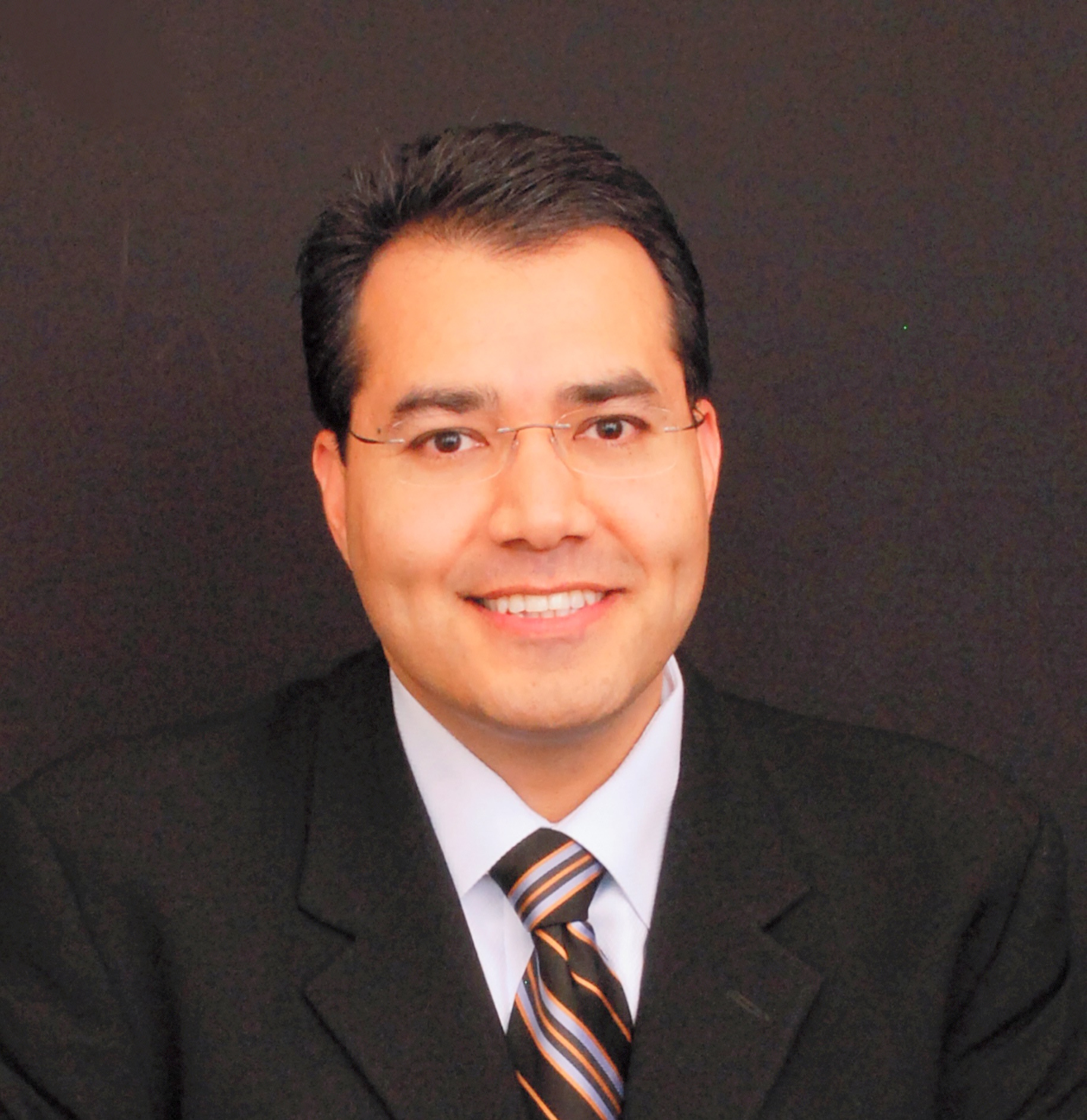 Damien M. Luviano, MD, CHCQM, FACS, FABQAURP
Damien M. Luviano, MD, CHCQM, FACS, FABQAURP
Salem Veterans Affairs Medical Center - Salem, VA
Dr. Luviano’s quest into improving patient quality and safety began in his ophthalmology residency. Various qualifications and experiences led him to become nominated to be part of the American National Standards Institute (ANSI) Safe Use of LASERS in Healthcare, where he has improved patient quality and safety at national and international levels.
Volunteers contribute to the writing of the ANSI Accredited Standards Committee (ASC) Z136, (2014) American National Standards for Safe Use of LASERS. Changes are approved by a team of experts that include agencies such as NASA. The Z136.1 is the foundation of laser safety programs for industrial, military, medical, and educational applications internationally. The purpose of the Z136.1 standards is to provide guidance for the safe use of lasers and laser systems. Organizations such as OSHA, FDA, Joint Commission, International Organization for Standardization (ISO), and the International Electrotechnical Commission (IEC) use these standards to their guidebook.
In addition to the consensus body, ASC Z136 is composed of standards subcommittees (SSC) and technical subcommittees (TSC) involved in Z136 standards development. As a voting member of the ANSI Standard Subcommittee (SSC-3) Safe Use of Lasers in Health Care, and Technical Subcommittee (TSC-1) LASER Bioeffects, Dr. Luviano has made over 50 suggestions to improve the safety of LASERS in healthcare with thirteen approved for the 2014 publication.
The most important changes submitted include disinfecting and/or sterilizing equipment that comes in contact with the human eye, and implementing written protocols to prevent wrong site, wrong patient, and wrong procedure events.
Dr. Luviano stated, “My greatest accomplishment is being part of a team that influences policy changes at the national and international level. This position has allowed me to implementing safer protocols to prevent wrong site surgeries and prevent infections. "
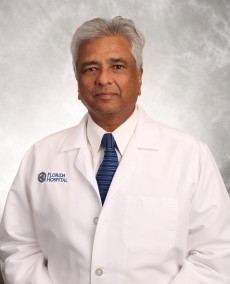 Ravi Patel, MD, CHCQM, MBBS, FACS
Ravi Patel, MD, CHCQM, MBBS, FACS
Innovative Healing Systems - Tampa, FL
The Undersea and Hyperbaric Medicine Society (UHMS) is hyperbaric medicine’s international standards-setting organization (much like the Joint Commission is to hospitals). In 2014, The Safety Committee of UHMS issued a position statement recommending a Safety Time Out / Pause (STOP) be performed prior to the start of every hyperbaric treatment. The STOP was to be modeled after Joint Commission’s National Patient Safety Goal, Universal Protocols for timeouts before surgery. Basic elements were outlined with a recommendation for each hyperbaric facility to develop and implement their own protocols to meet their needs.
Innovative Healing Systems (IHS), led by Chief Medical Officer and President, Dr. Ravi Patel, manages six Wound Healing Institutes that include Hyperbaric Oxygen Therapy. Striving to meet this standard began with a process of policy and procedure development and staff education.
IHS developed and/or updated standards and explicit procedures to ensure this recommendation was met and best practices were universal throughout their institutes. Success was measured as reaccreditation was granted in August 2016; including the endowment of UHMS Re-accreditation with Distinction at three IHS Wound Healing Institutes in the Tampa Bay area. Accreditation demonstrates to customers the organization is committed to reducing risk, addressing health and safety concerns, respecting cultural and individual preferences, and providing the best possible quality of care.
According to Dr. Patel, “Implementation of "STOP" has brought increased awareness to the process of safety first…Although we have always been keenly aware of "Safety First", we have observed that the entire process "STOP" has raised awareness of the need to make the routine of prime importance.”
 Victor L. Roberts, MD, MBA, FACP, FACE, CHCQM, CPE
Victor L. Roberts, MD, MBA, FACP, FACE, CHCQM, CPE
Endocrine Associates of Florida, P.A. - Lake Mary, FL
Dr. Roberts’ practice in endocrinology, metabolism, and diabetes manages the broad spectrum of patients within this domain. Over time, it has evolved into a center that provides state of the art high-technology solutions to very difficult management issues. A large component is diabetes care.
The group has succeeded in reducing the number of ER visits and hospital admissions for diabetes mellitus out of control. It is a rare occurrence for any of our (long-term) patients to experience the heartbreak of blindness, renal failure, or leg amputation.
Patients are strongly encouraged to, and often do, attain and maintain significant reductions in HbA1c, lipids, and hypertension. This will translate as reduction in both the micro and macrovascular morbidities that are often a consequence of this burdensome disease.
Success is attributed to the robust management program in place, offering insulin pump therapy, and continuous glucose monitoring. With multiple clinical protocols in place, the team of certified diabetes educators, RNs, RDs and support staff (and overseen by Dr. Roberts as the consulting endocrinologist) manage well in excess of 1000 patients actively followed.
It is therefore a rare occurrence for any of our patients to be admitted to hospital for diabetes out of control or episodic diabetic ketoacidosis.
Dr. Roberts and his team “believe we have had a favorable impact in Central Florida, improving the lives of people who suffer from diabetes and other endocrine conditions, and look forward to continue our mission."
CHCQM Diplomate Achievement Award presentation took place on May 19, 2017 in conjunction with ABQAURP’s 40th Annual Conference!
